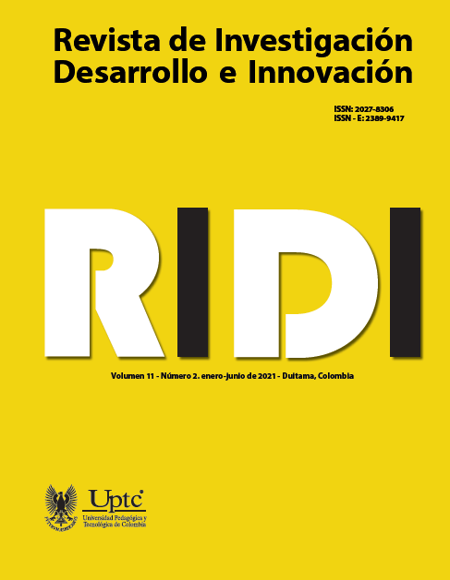Reference meanings of the Group object

Abstract
The objective of this article is to answer the question: What is the meaning of the mathematical object group? For this, the Ontosemiotic Approach to Knowledge and Mathematical Instruction is taken into account as a theoretical reference. In this direction, a synthesis of the reconstruction of the global meaning of the Group object and of the reference meanings given in two classic books (Herstein and Gallian) and in two contemporary books (Lezama and Caicedo) is presented, following the methodology of semiotic analysis. of texts, proposed by this approach. As results, the meanings of the Group object, both global and partial, are presented, identified in books where it is evident that these intend to arrive at work with the meaning "Abstract"; and problem-situations are proposed as a teaching strategy to promote the understanding of partial meanings identified in the epistemic configurations, emerging from the epistemological and historical study. The study of the meanings of this object is important in the design of the instruction to decide which of these are implemented in the instructional process through the mathematical practices that motivated its development.
Keywords
group;, meanings;, epistemology;, setting;, ontology;, semiotics
Author Biography
Omaida Sepúlveda-Delgado
Licenciada en Matemáticas, Doctora en Educación
Zagalo Enrique Suárez-Aguilar
Licenciado en Ciencias de la Educación Matemática y Física, Doctor en Educación
Luis Roberto Pino-Fan
Licenciado en Enseñanza de las Matemáticas, Doctor en Didáctica de la Matemática
References
Breda, A., Pino-Fan, L., & Font, V. (2017). Meta didactic-mathematical knowledge of teachers: Citeria for the reflection and assessment on teaching practice. Eurasia Journal of Mathematics, Sciencie &Technology , 1893-1918.
Caicedo, J. F. (2003). Introducción a la teoría de Grupos. Santafé de Bogotá: Universidad Nacional de Colombia.
Calle, E., & Breda, A. (2019). Reflexión sobre la complejidad de los objetos matemáticos en la formación inicial de profesores. La Investigación Educativa en un Mundo en Constante Transformación, 29-50.
Castellet , M., & Llerena, I. (2000). Álgebra lineal y Geometría . Barcelona: Reverté.
Esqué, V., & Breda, A. (2021). Valoración y rediseño de una unidad sobre proporcionalidad utilizando la herramienta Idoneidad Didáctica. Uniciencia, 1, 38-54.
Font, V., Breda, A., & Seckel, M. (2017). Algunas implicaciones didácticas derivadas de la complejidad de los objetos matemáticos cuando estos se aplican a distintos contextos. Revista brasileira de ensino de ciência e tecnologia,, 10 (2), 1-23.
Font, V., Godino, J. D., & Gallardo, J. (2012). The emergence of objects from mathematical practices. Educational Studies in Mathematics, 82 (1), 97-124. https://doi.org/10.1007/s10649-012-9411-0
Gallian, J. A. (2006). Contemporary Abstract Algebra. Boston: Houghton Mifflin.
Godino, J. D. (2012). Origen y aportaciones de la perspectiva ontosemiótica de investigación en Didáctica de la Matemática . Investigación en Educación Matemática, XVI, 49-68.
Godino, J. D., Batanero, C., & Font, V. (2019). The onto-semiotic approach: implications for the prescriptive character of didactics. For the Learning of Mathematics, 39 (1), 37- 42.
Godino, J., & Batanero, C. (1994). Significado institucional y personal de los objetos matemáticos. Researches en Didactique des Mathématiques, 14 (3), 335-355.
Godino, J., Batanero, C., & Font, V. (2007). The onto-semiotic approach to research in mathematics education ZDM. The International Journal on Mathematics Education, 39 (3), 137-135. https://doi.org/10.1007/s11858-006-0004-1
Godino, J., Batanero, C., & Font, V. (2019). The Onto-semiotic Approach: implications for the prescriptive character of didactics. For the Learning of Mathematics, 39 (1), 37-42.
Godino, J., Batanero, C., & Giacome, B. (2017). Enfoque Ontosemiótico de los Conocimientos y Competencia del Profesor de Matemáticas. Bolema, 31(57), 90-113.
Herstein, I. N. (1986). Abstract Algebra. New York: Wiley.
Kaiber, C. T., Lemos, A. V., & Pino-Fan, L. R. (2017). Enfoque Ontossemiótico do Conhecimento e da Instrução Matemática (EOS): um panorama das pesquisas na América Latina. Perspectivas da Educação Matemática, 10 (23), 531- 552.
Lezama, O. (2013). Teoría de Grupos. Santafé de Bogotá.: Universidad Nacional de Colombia.
Pino-Fan, L. (2013). Evaluación de la faceta epistémica del conocimiento didáctico-matemático de futuros profesores de bachillerato sobre la derivada. (Tesis Doctoral). Granada: Universidad de Granada: España.
Pino-Fan, L. (15 de Junio de 2017). Contribución del Enfoque Ontosemiótico a las investigaciones sobre didáctica del cálculo. Recuperado de: http://enfoqueontosemiotico.ugr.es/civeos/pino-fan.pdf
Pino-Fan, L., Breda, A., & Font, V. (2017). Mathematics teachers’ knowledge and competences model based on the onto-semiotic approach. en Kaur, B., Ho, W. K., Toh, T. L., & Choy, B. H. (Eds.) 33-40. Singapore: PME.
Pino-Fan, L., Godino, J., & Font, V. (2011). Faceta epistémica del conocimiento didáctico matemático sobre la derivada. Educaçao Matemática Pesquisa, 13(1), 141-178.
Presmeg, N. C. (2014). Contemplating visualization as an epistemological learning tool in mathematics. The international journal on mathematics education, 36(1), 151–157. https://doi.org/10.1007/s11858-013-0561-z
Rodríguez, C., Rodríguez, F., & Font, V. (2020). A new view about connections: the mathematical connections established by teacher when teaching the derivate. International Jornal of Mathematical Education ins Science and Technology. https://doi.org/10.1080/0020739X.2020.1799254
Sepúlveda, O. (2015). Estudio del conocimiento didáctico-matemático del profesor universitario: un marco teórico de investigación. Revista de Investigación, Desarrollo e Innovación, 6 (1), 39-43. https://doi.org/10.19053/20278306.4048
Sepúlveda, O., Gutiérrez, N., & Aldana, E. (2017). Estudio epistemológico del objeto Grupo: una mirada piagetiana a la luz del EOS. Praxis & Saber, 8 (18), 333-353. https://doi.org/10.19053/22160159.v8.n18.2017.7250
Sepúlveda, O. (2018). El conocimiento didáctico matemático del profesor universitario. Tunja, Colombia: Editorial UPTC.
Vasquez, C. (2014). Evaluación de los Conocimientos Didáctico - Matemáticos para la enseñanza de la probabilidad de los profesores de educación primaria en activo. (Tesis Doctoral). Girona: Universitat de Girona.
